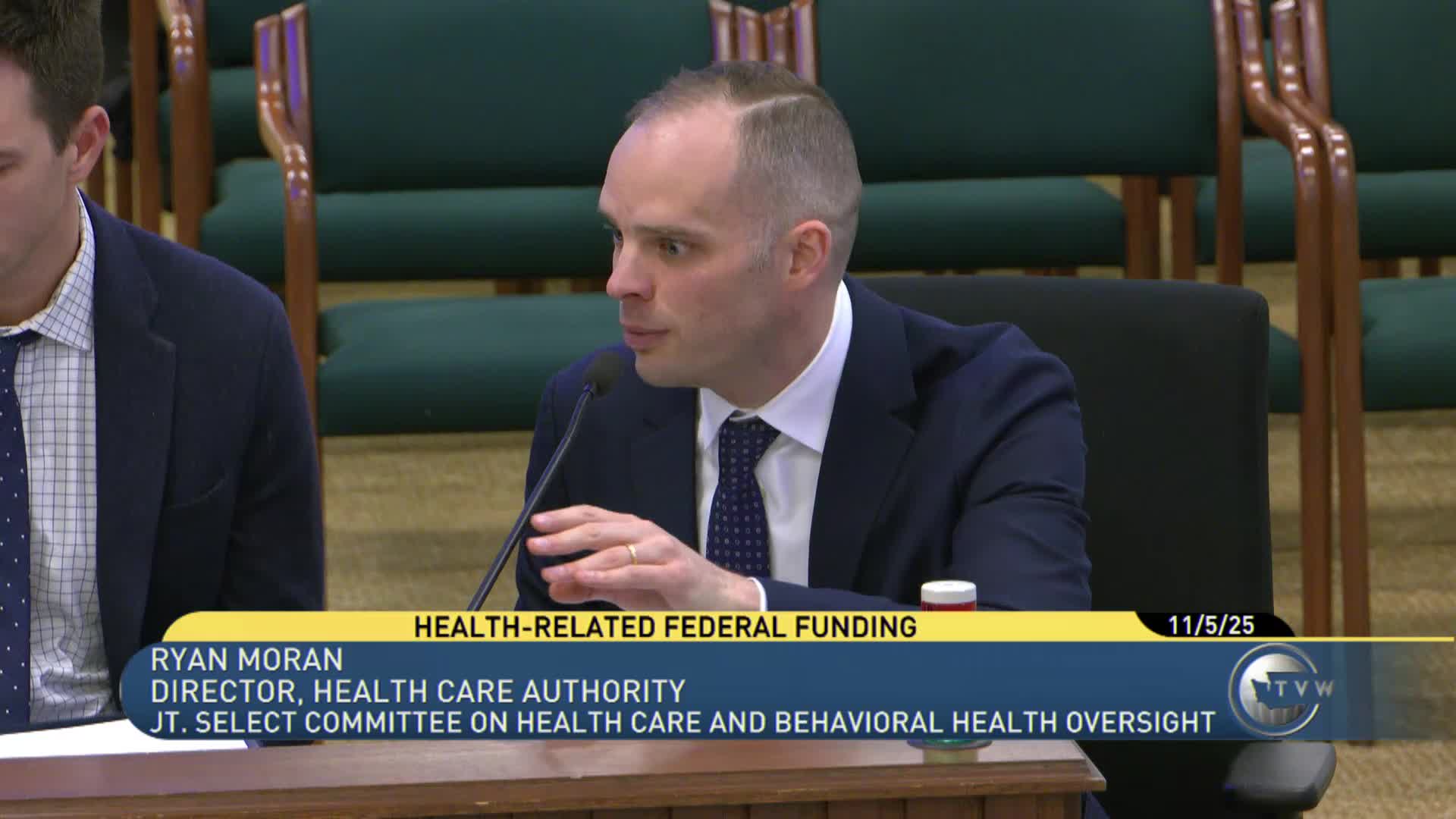Washington officials warn HR 1 could put coverage at risk; $30M IT, outreach needs flagged
Get AI-powered insights, summaries, and transcripts
Subscribe
Summary
Health Care Authority interim Medicaid director Trinity Wilson and the governor’s senior health policy adviser Caitlin Stafford told the joint committee Nov. 5 that implementing HR 1 will require major IT work, cross‑agency coordination and expanded outreach to limit coverage losses.
Trinity Wilson, interim Medicaid director at the Health Care Authority, and Caitlin Stafford, the governor’s senior health policy adviser for health and behavioral health, told the joint committee on Nov. 5 that Washington is planning for multiple HR 1 implementation deadlines and that those steps will require technology investments, cross‑agency coordination and expanded outreach.
"We do expect, that's due October 2026. We do expect that up to 30,000 Apple Health recipients could lose coverage due to this provision," Wilson said about the change to federally funded Medicaid eligibility for some lawfully present noncitizens. Wilson said the state expects the October 2026 change for that provision and highlighted an additional set of calendar‑year‑2026 milestones — a community‑engagement (work) requirement and six‑month eligibility redeterminations for adults due by Dec. 31, 2026 or early 2027.
Wilson said Washington has about 620,000 adults in the expansion population who could be affected by the work/community‑engagement and redetermination rules; she said roughly 80,000 recipients are enrolled in both Medicaid and SNAP, which could require parallel verification. HCA staff said existing data links (provider payment systems and Employment Security quarterly wage data) could automate much of the verification, potentially covering an estimated 80% of cases, but that 15–20% could require manual adjudication.
HCA officials gave a preliminary technology estimate for an IT solution to automate verification: "upwards of $30,000,000," Trinity said. Officials cautioned that federal guidance from CMS has not yet been finalized; a formal rule was expected in mid‑2026 and an informational bulletin had been signaled for the end of the calendar year. The agencies noted states may apply for waivers to delay certain changes but described uncertainty about timing and waiver application details.
Caitlin Stafford told the committee the governor’s office is coordinating early tribal consultation because some Indian Health Service‑enrolled individuals are exempt from parts of HR 1, and leaders want to ensure tribal sovereignty and data flows are respected. Stafford also noted the Health Benefit Exchange and the Office of the Insurance Commissioner are engaged in planning because changes may affect enrollment pathways and the broader insurance market.
Officials asked the committee for partnership on communication plans and said they will share public toolkits and coordinate with provider, navigator and community partners to minimize coverage loss and administrative burden.
